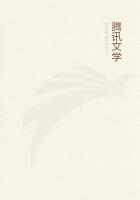
第2章
I AM going to try if I can't write something about myself. My life has been rather a strange one. It may not seem particularly useful or respectable; but it has been, in some respects, adventurous; and that may give it claims to be read, even in the most prejudiced circles. I am an example of some of the workings of the social system of this illustrious country on the individual native, during the early part of the present century;and, if I may say so without unbecoming vanity, I should like to quote myself for the edification of my countrymen.
Who am I.
I am remarkably well connected, I can tell you. I came into this world with the great advantage of having Lady Malkinshaw for a grandmother, her ladyship's daughter for a mother, and Francis James Softly, Esq., M. D. (commonly called Doctor Softly), for a father. I put my father last, because he was not so well connected as my mother, and my grandmother first, because she was the most nobly-born person of the three. I have been, am still, and may continue to be, a Rogue; but I hope I am not abandoned enough yet to forget the respect that is due to rank. On this account, I trust, nobody will show such want of regard for my feelings as to expect me to say much about my mother's brother.
That inhuman person committed an outrage on his family by making a fortune in the soap and candle trade. I apologize for mentioning him, even in an accidental way. The fact is, he left my sister, Annabella, a legacy of rather a peculiar kind, saddled with certain conditions which indirectly affected me; but this passage of family history need not be produced just yet. Iapologize a second time for alluding to money matters before it was absolutely necessary. Let me get back to a pleasing and reputable subject, by saying a word or two more about my father.
I am rather afraid that Doctor Softly was not a clever medical man; for in spite of his great connections, he did not get a very magnificent practice as a physician.
As a general practitioner, he might have bought a comfortable business, with a house and snug surgery-shop attached; but the son-in-law of Lady Malkinshaw was obliged to hold up his head, and set up his carriage, and live in a street near a fashionable square, and keep an expensive and clumsy footman to answer the door, instead of a cheap and tidy housemaid. How he managed to "maintain his position" (that is the right phrase, I think), Inever could tell. His wife did not bring him a farthing. When the honorable and gallant baronet, her father, died, he left the widowed Lady Malkinshaw with her worldly affairs in a curiously involved state. Her son (of whom I feel truly ashamed to be obliged to speak again so soon) made an effort to extricate his mother--involved himself in a series of pecuniary disasters, which commercial people call, I believe, transactions--struggled for a little while to get out of them in the character of an independent gentleman--failed--and then spiritlessly availed himself of the oleaginous refuge of the soap and candle trade.
His mother always looked down upon him after this; but borrowed money of him also--in order to show, I suppose, that her maternal interest in her son was not quite extinct. My father tried to follow her example--in his wife's interests, of course; but the soap-boiler brutally buttoned up his pockets, and told my father to go into business for himself. Thus it happened that we were certainly a poor family, in spite of the fine appearance we made, the fashionable street we lived in, the neat brougham we kept, and the clumsy and expensive footman who answered our door.
What was to be done with me in the way of education?
If my father had consulted his means, I should have been sent to a cheap commercial academy; but he had to consult his relationship to Lady Malkinshaw; so I was sent to one of the most fashionable and famous of the great public schools. I will not mention it by name, because I don't think the masters would be proud of my connection with it. I ran away three times, and was flogged three times. I made four aristocratic connections, and had four pitched battles with them: three thrashed me, and one Ithrashed. I learned to play at cricket, to hate rich people, to cure warts, to write Latin verses, to swim, to recite speeches, to cook kidneys on toast, to draw caricatures of the masters, to construe Greek plays, to black boots, and to receive kicks and serious advice resignedly. Who will say that the fashionable public school was of no use to me after that?
After I left school, I had the narrowest escape possible of intruding myself into another place of accommodation for distinguished people; in other words, I was very nearly being sent to college. Fortunately for me, my father lost a lawsuit just in the nick of time, and was obliged to scrape together every farthing of available money that he possessed to pay for the luxury of going to law. If he could have saved his seven shillings, he would certainly have sent me to scramble for a place in the pit of the great university theater; but his purse was empty, and his son was not eligible therefore for admission, in a gentlemanly capacity, at the doors.
The next thing was to choose a profession.